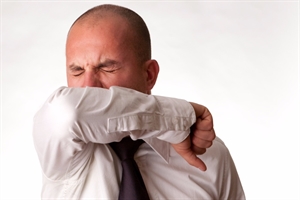A common cold in the comfort of your own home is one thing; but when you’re traveling even a mild illness can cause inconvenience and disrupt your plans. So it’s worth taking steps to avoid respiratory illnesses when you go traveling. But did you know that the simple steps you take to avoid colds and other respiratory viruses will also support the vaccines you get against more serious diseases like diphtheria, measles, meningitis and pertussis?
How do I protect myself from respiratory illness while I’m on vacation?
It’s very easy to contract a respiratory illness, and difficult to avoid exposure to the viruses that cause them. Sick people breathe out pathogens (commonly viruses) which may hang in the air or settle on a surface. Breathing in those viruses will put you at risk of respiratory infection; and touching an infected surface and then your eyes, nose or mouth will transfer the virus to your own body.
You can reduce the chances of you getting a respiratory infection by getting vaccinated against the most dangerous respiratory illnesses. These are:
There are also vaccines against measles and pertussis available. When you come for your travel health appointment six to eight weeks before departure, you can get any vaccinations or boosters that you need to protect you from diphtheria and meningitis.
Vaccines offer good protection to travelers, but it’s not perfect, so you need to support this with actions like handwashing (as recommended by the CDC) and by staying fit and healthy through good diet and managing your activity levels and sleep.
You can also reduce your chances of exposure to respiratory disease by avoiding crowded situations, including concerts, festivals, weddings and funerals etc. People who use domestic accommodation – for example, homestay or visiting friends and relations – are also at greater risk from respiratory illness.
Practice good respiratory etiquette while traveling
Respiratory etiquette includes covering coughs and sneezes and disposing carefully of used tissues. If you are unwell, consider changing your travel plans so that you do not expose others to your respiratory droplets. Resting will help you get well faster, too.
Some people prefer to wear masks when they have a respiratory illness, or when they go into an enclosed or crowded space like public transport. In most places, masking is optional, but be guided by the behavior of those around with regards to masking up.
Air quality and respiratory health
People with a chronic respiratory condition such as asthma sometimes find that pollution and smoke worsen their breathing.
If this sounds like you, ask about any pollution warnings when you come for your travel health appointment. This will give you an idea of what to expect when you arrive. You can talk with your normal healthcare provider to learn more about reducing the effect of pollution on your lung condition.
How can I get a travel health appointment?
It’s quick and easy to make a travel health appointment with Global Travel Clinics. We have plenty of appointments at our travel health centers in Houston and Stafford and at our travel health centers in Washington. We recommend making an initial appointment six to eight weeks before you travel.


Book Online